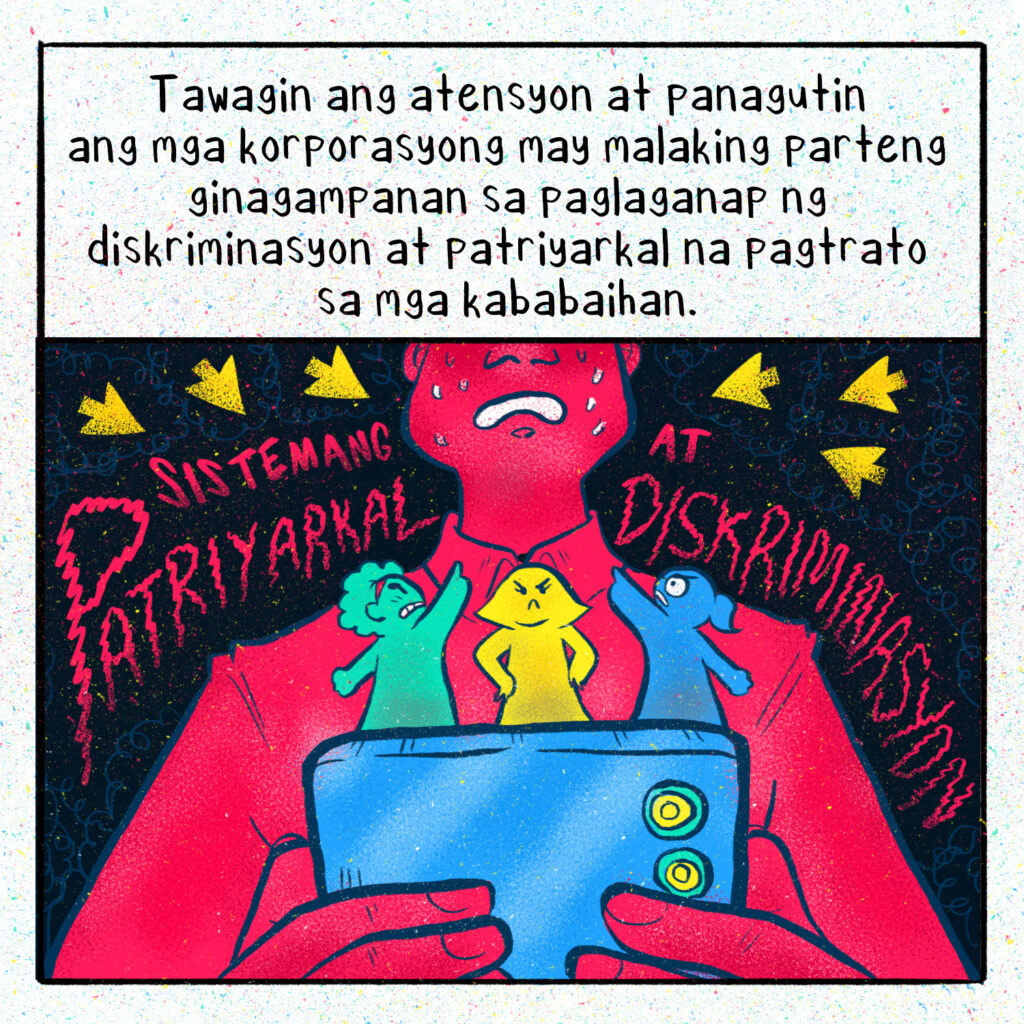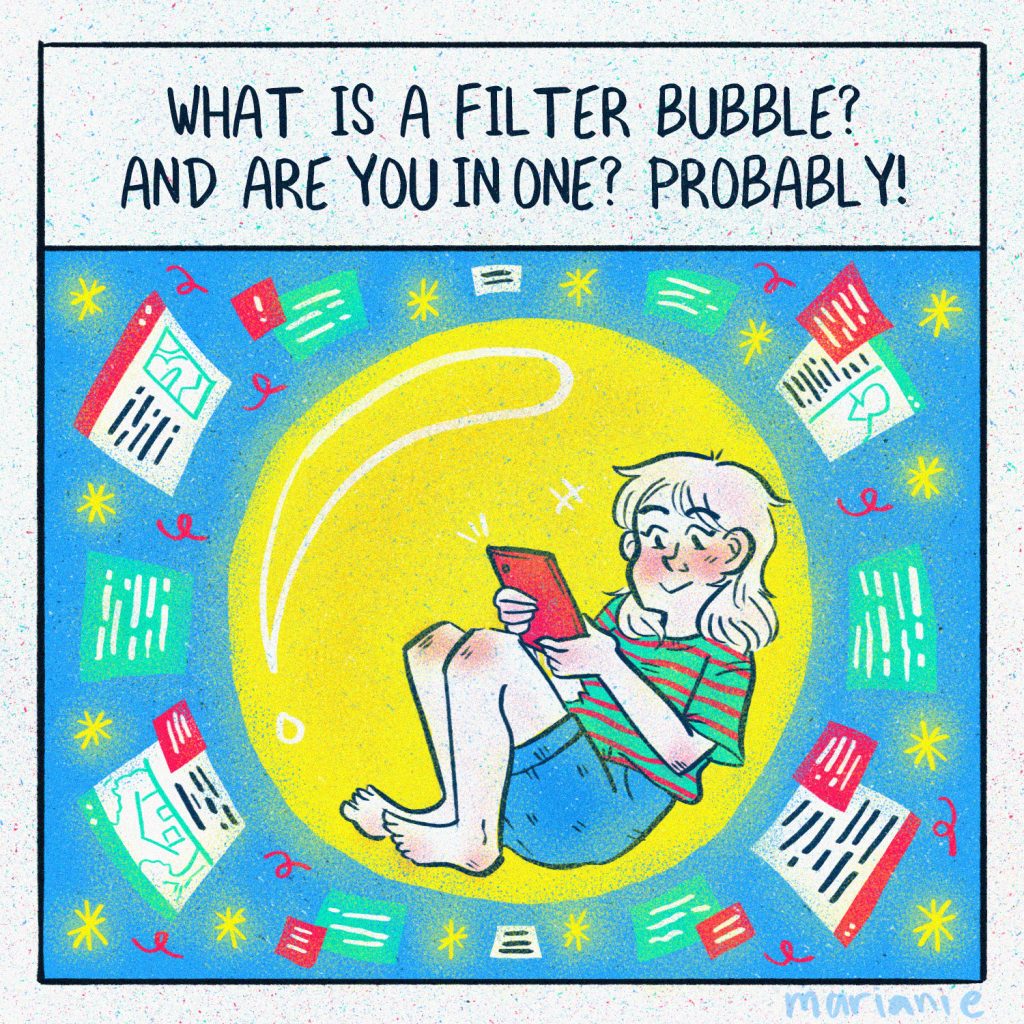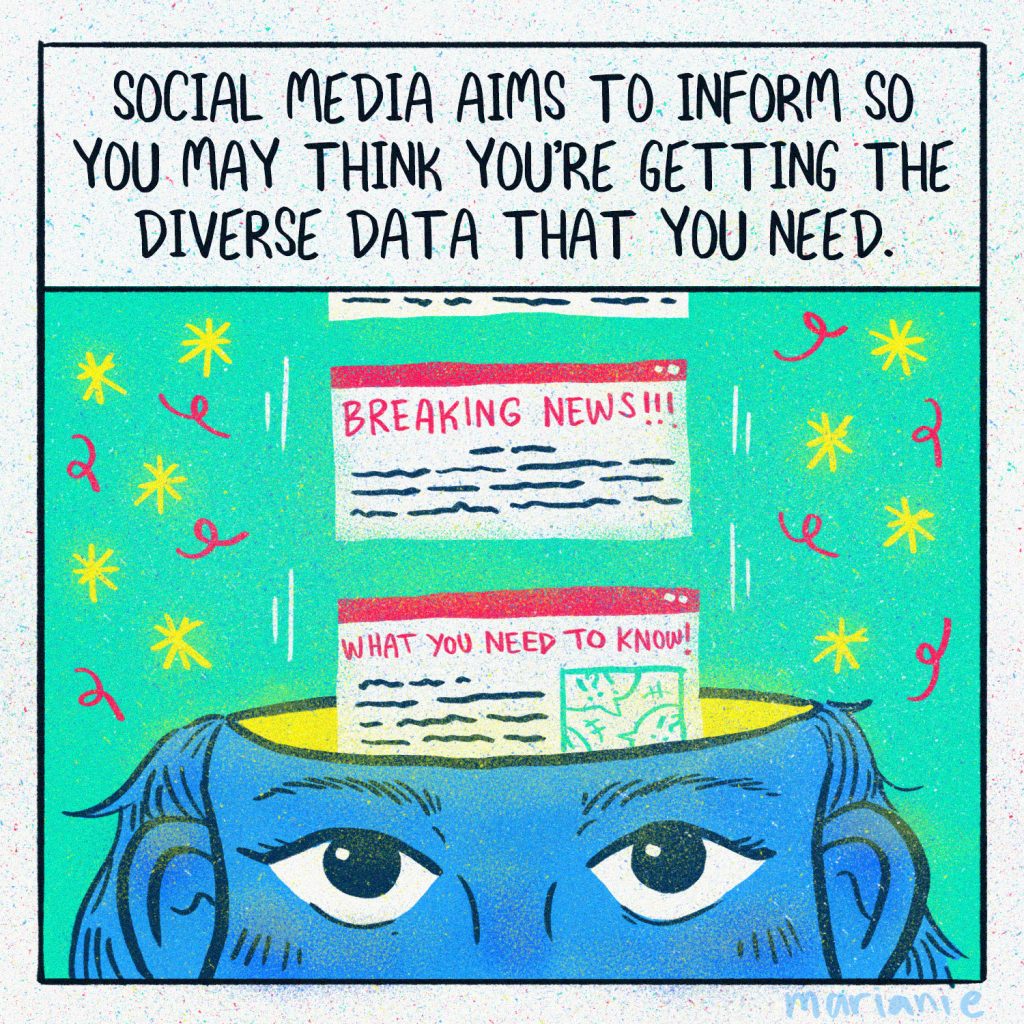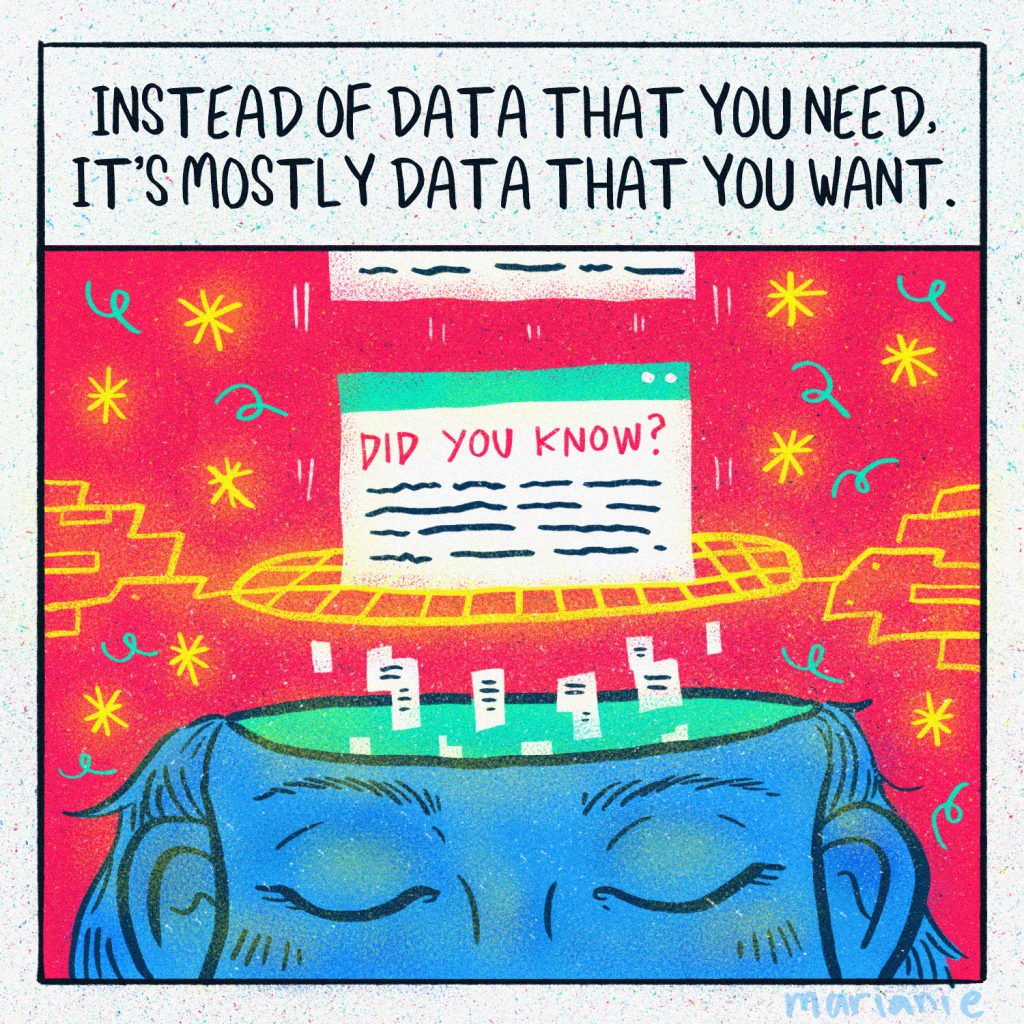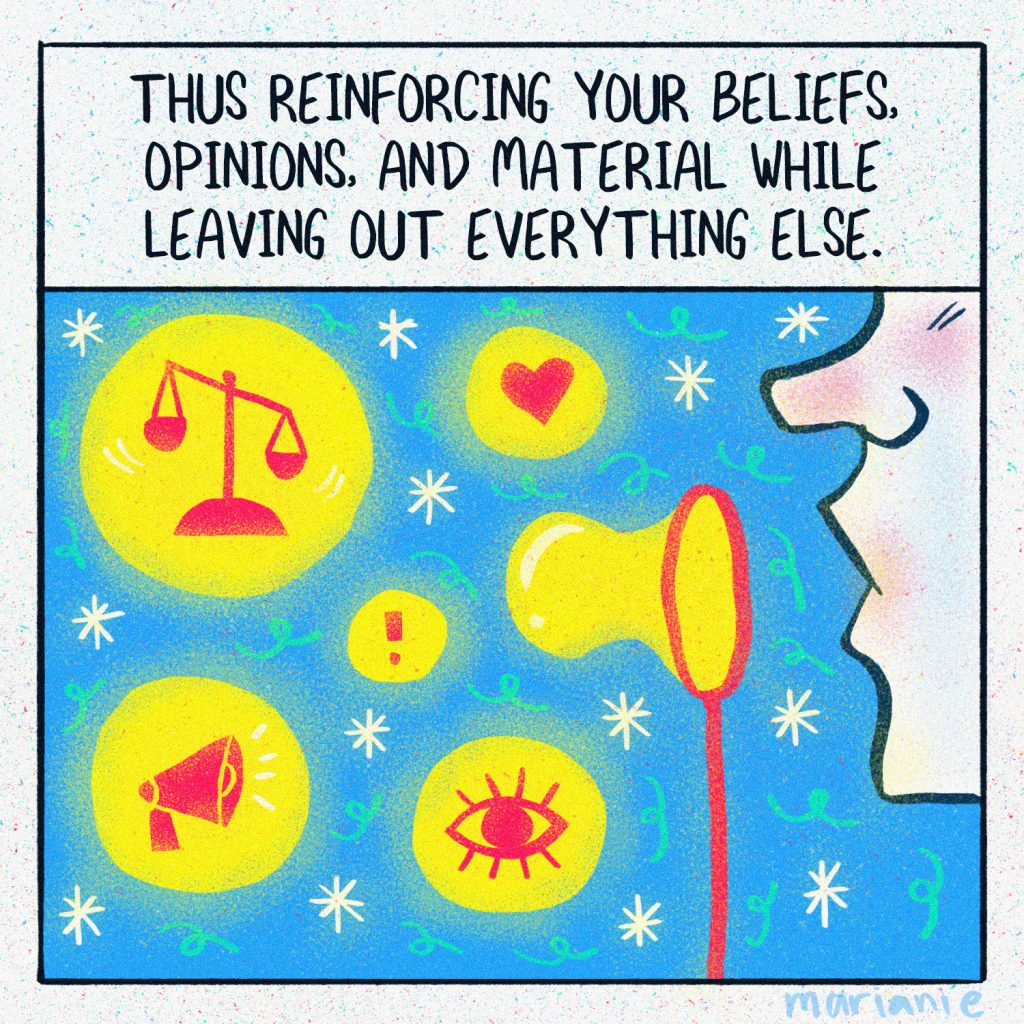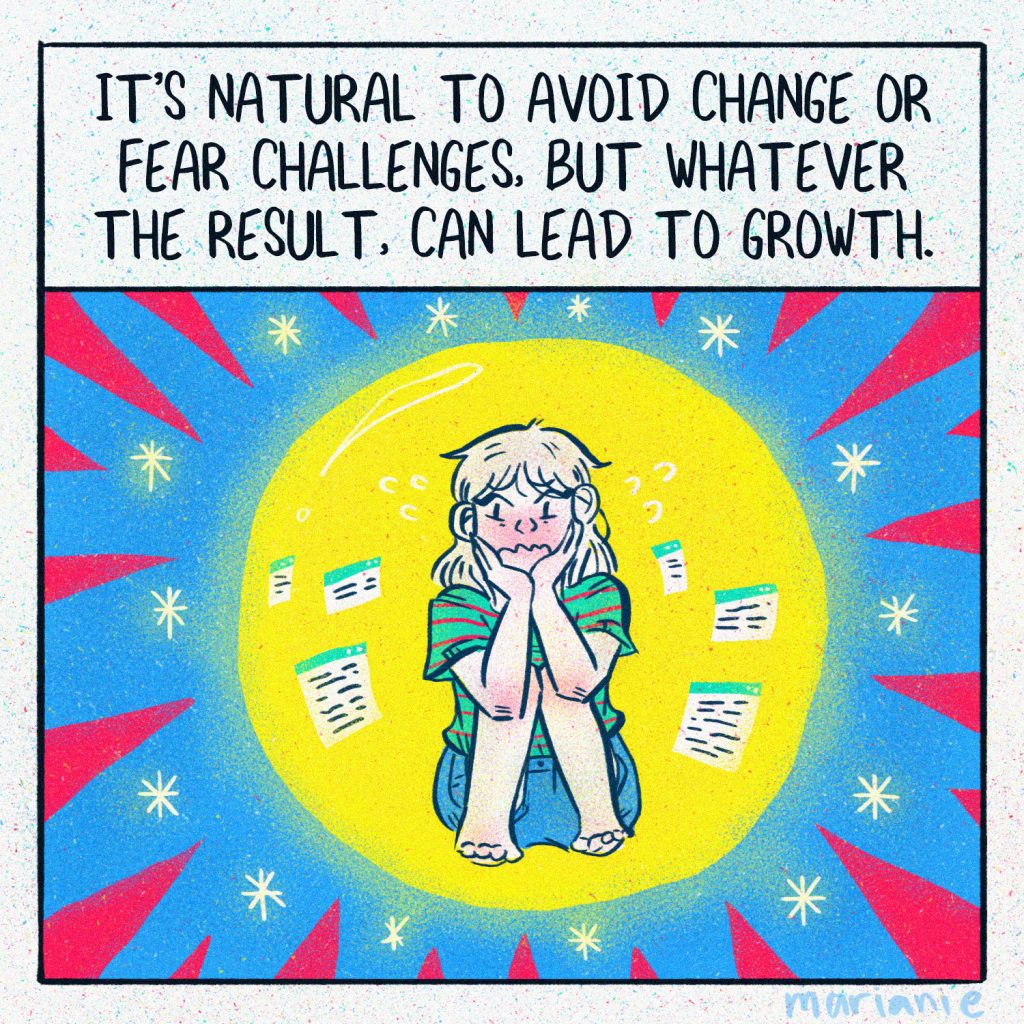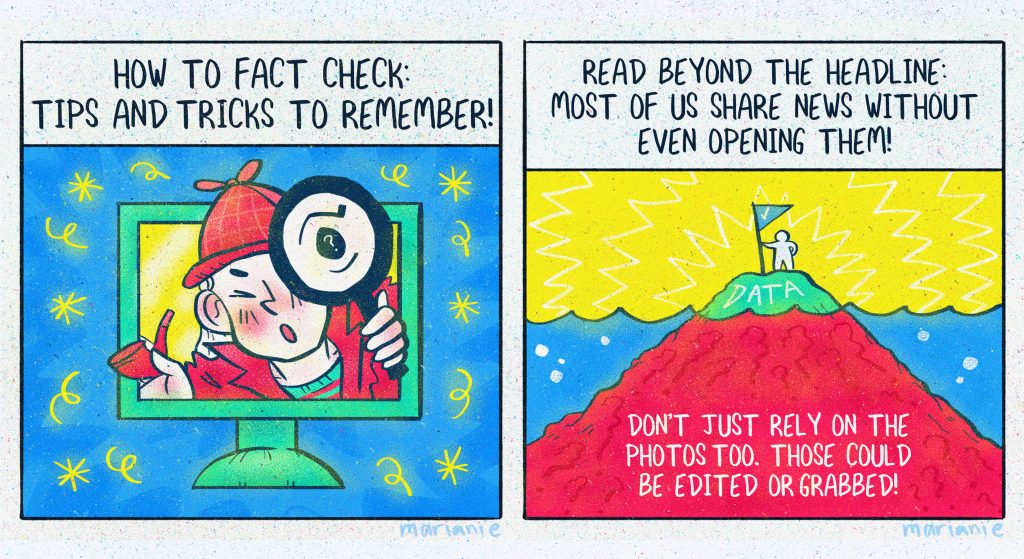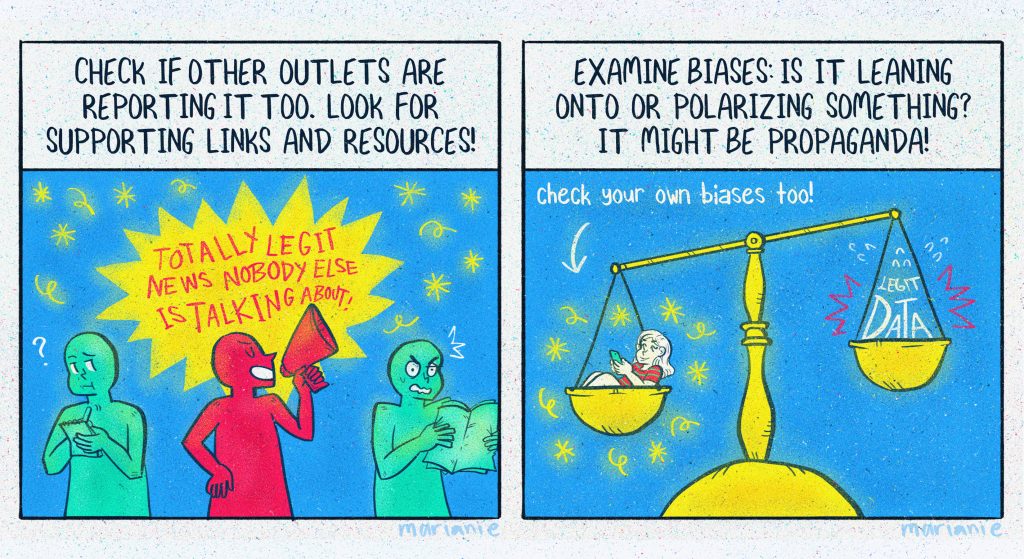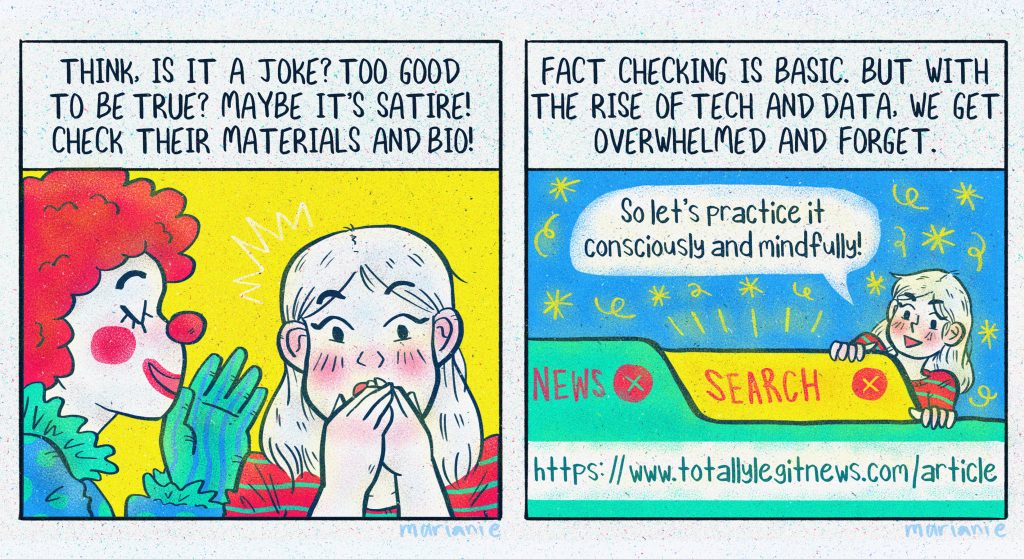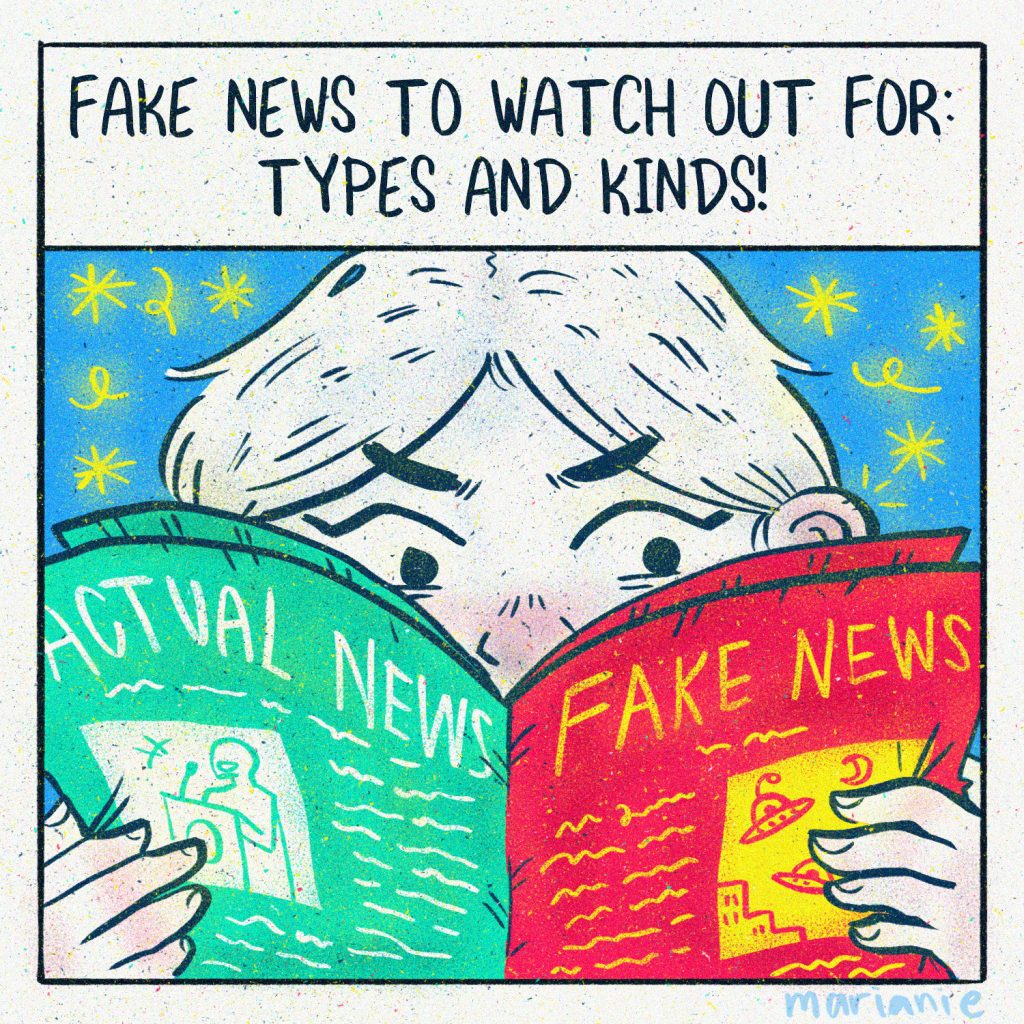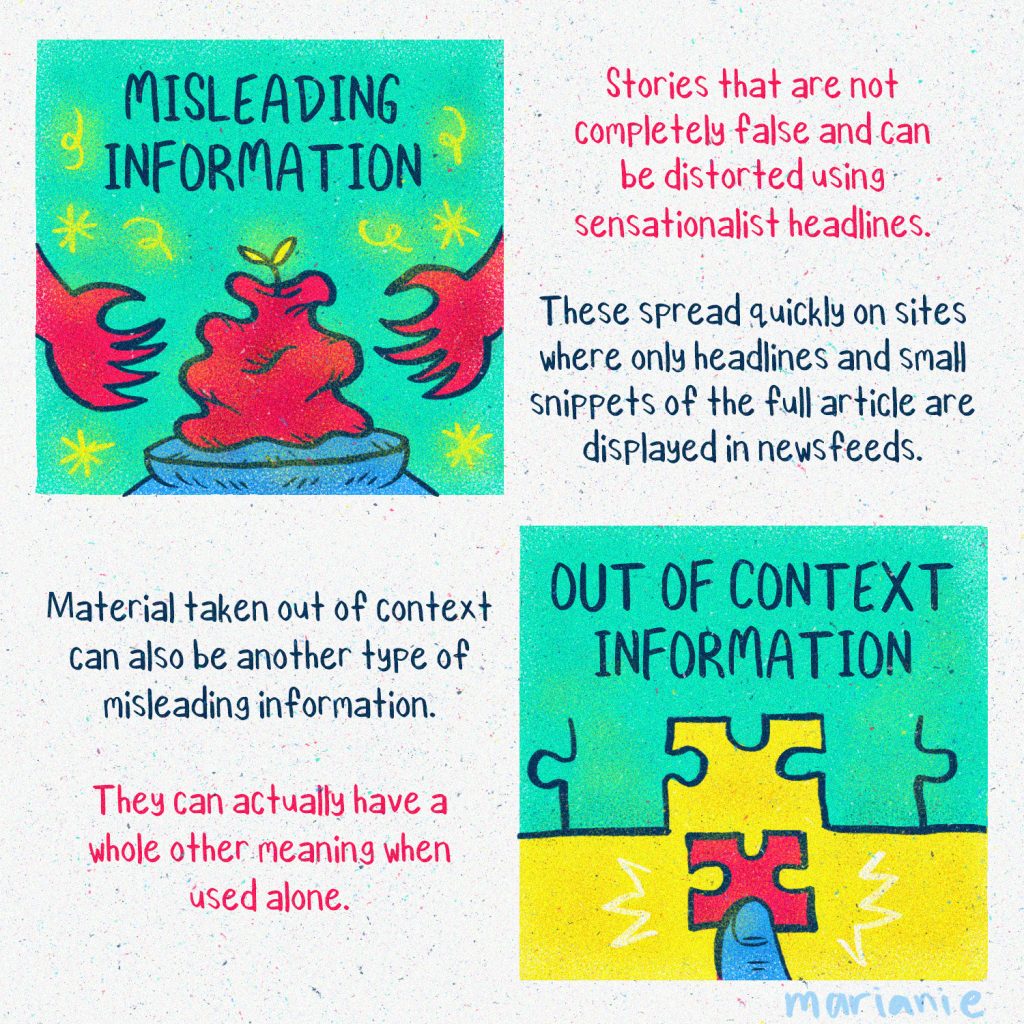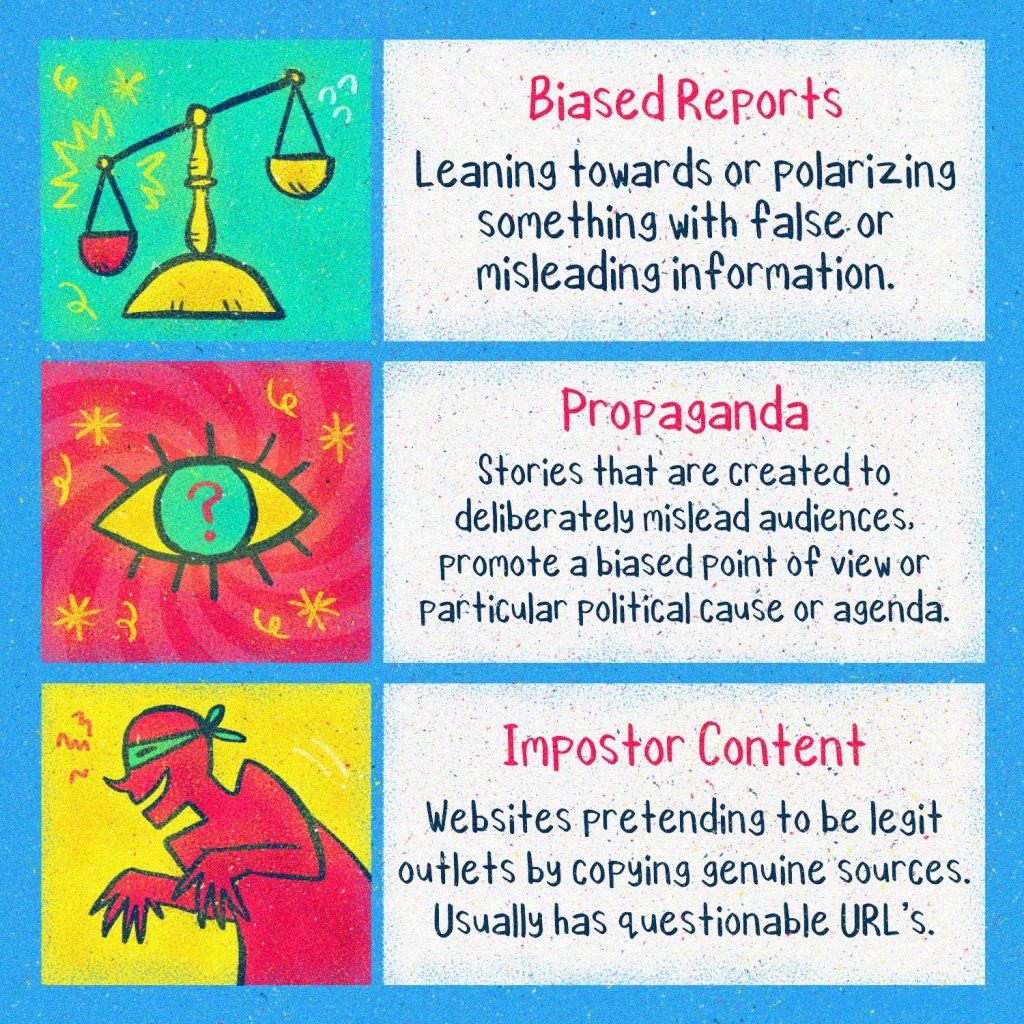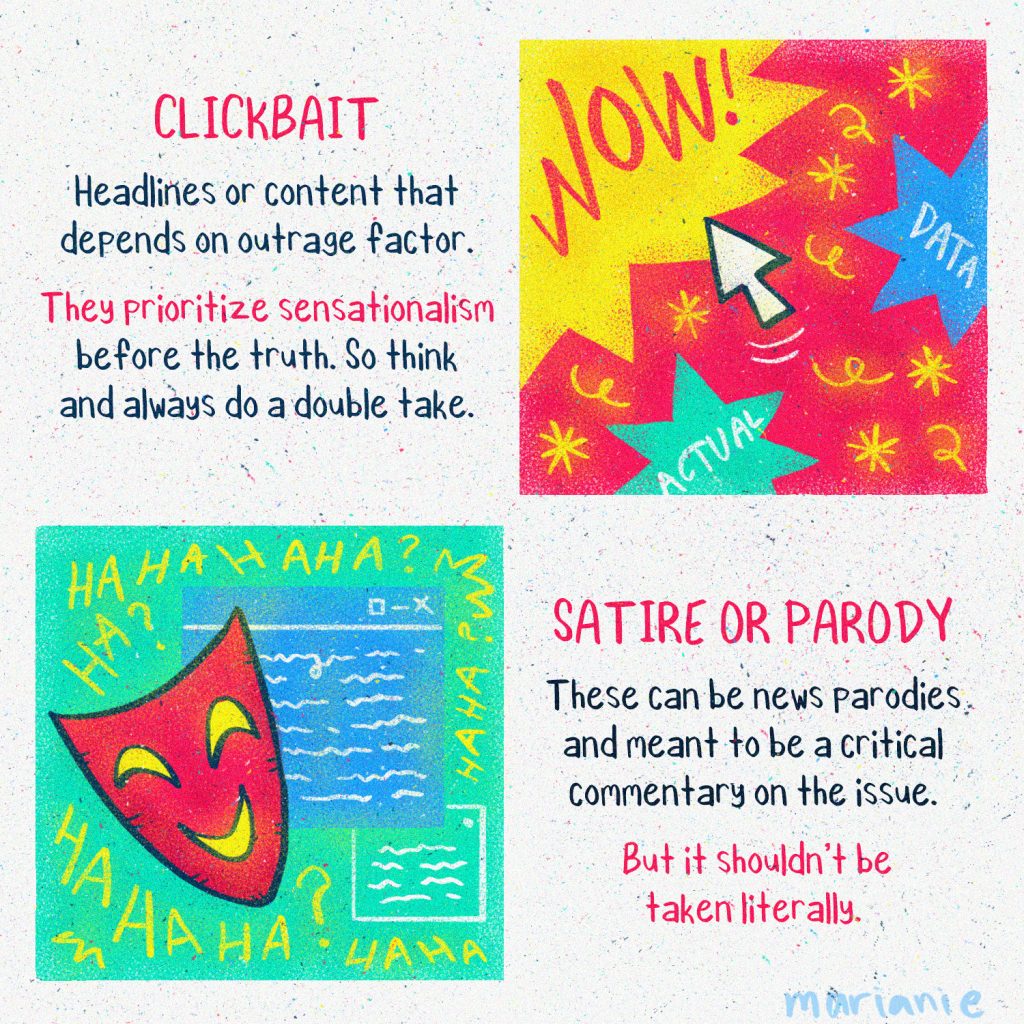
“Marianie” or also known as Marian is a small Filipina who is obsessed with the color pink. A Manila girl by heart and a workaholic for the arts, she draws between the busy days.
Some of her personal projects are “Nagmamahal, Maria Clara” – Filipina feminist platform online and in print (comics, postcards, zines, etc.) and “Komiks Sundays”.
Marian is also part of a Filipino comics collective where she sells print merchandise and manage social media.
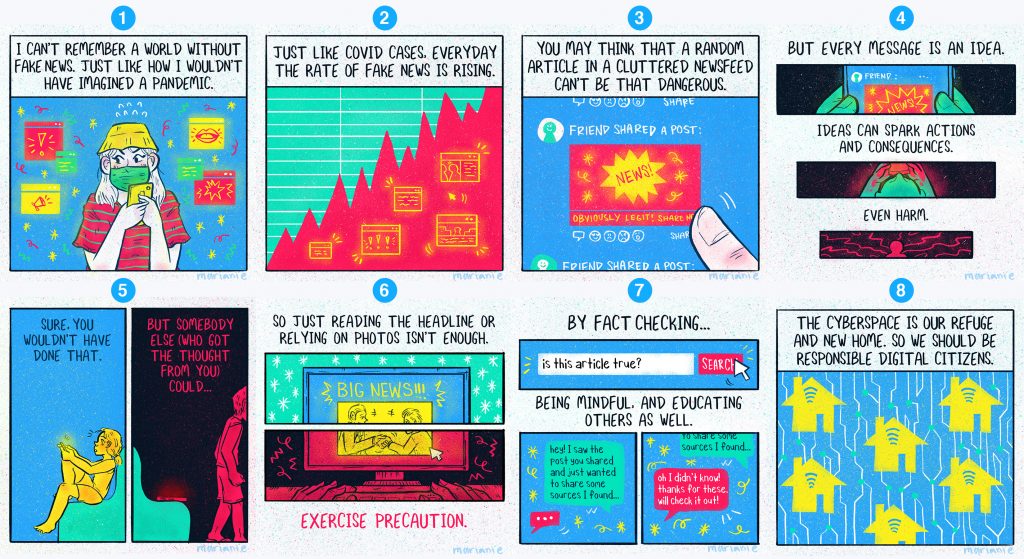
Introduction: A disease in the form of fake news
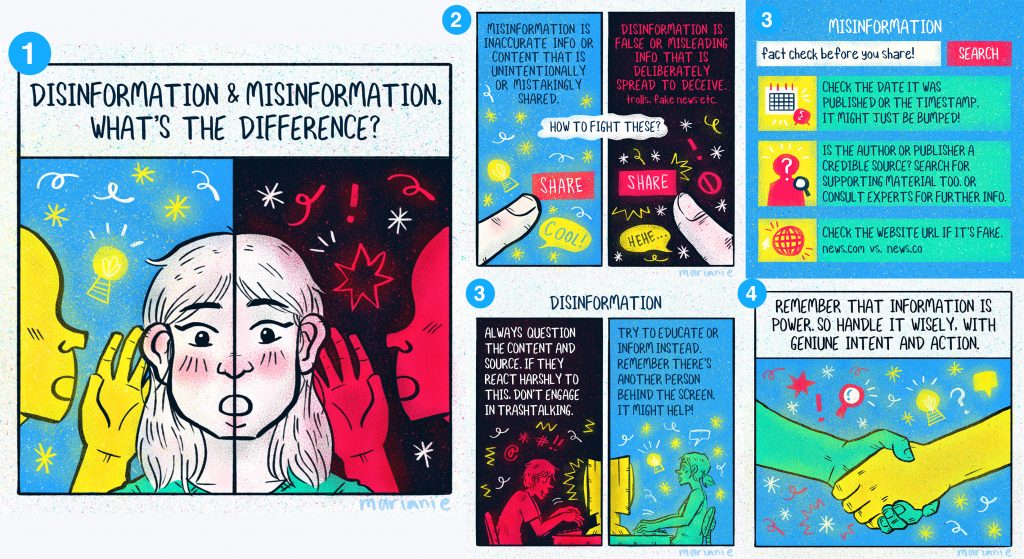
Disinformation and Misinformation? What’s the difference?
Today, many Filipinos are frequently online. With the advancement of technology, violence on the internet is also growing. This is called online gender-based violence (OGBV), which includes harassment (malicious comments), sextortion (a type of blackmailing in exchange for sensitive information, photos, or sexual intercourse), privacy breach (illegal access to information without permission), identity theft, etc.
Under OGBV, gendered disinformation is also rising. Gendered disinformation refers to the spreading of deceptive and wrong information and images against women or criticizing based on the personality and gender of a woman to taint her reputation. This usually comes with “dog whistling” or the coordination of attackers. Specific examples include doxxing (collecting or circulating private information through the internet) and deepfake pornography (manipulating to create realistic images and videos of women for explicit content through artificial intelligence).
What are the causes of gendered disinformation? One of the causes of gendered disinformation includes patriarchy since gendered disinformation is rooted in the patriarchal society where men are viewed as more powerful and deserving of criticizing politics, society, behavior, and controlling belongings. Women are in danger because of (misogynist) biases and stigma. This kind of violence is brought online and strengthened by the internet. Another cause of gendered disinformation is malign creativity, which uses coded language or visual context to attack people online. This tactic is difficult to detect and online platforms have no sufficient way to regulate this, as moderators lack experience about this.
Gendered disinformation is often ignored as it is seen as a superficial issue and only exists on the internet. However, we may not be aware of the immense risk of gendered misinformation to the public and private security of women. Democratic and societal participation of women in online spaces may be undermined because of the exhaustion, danger, and fear that gendered disinformation brings about.
Since there is insufficient moderation and regulation, victims and even online users are obligated to thoroughly detect, report, and block when faced with these kinds of abuses. Because of this, it is proper to pay close attention to gendered disinformation as online spaces are now part of our home and society and it is the right of women to socialize safely.
Ang online space ay para sa lahat! Here’s the last comic made by Marian Hukom covering Gendered Disinformation and Online Gender-based Violence.

















